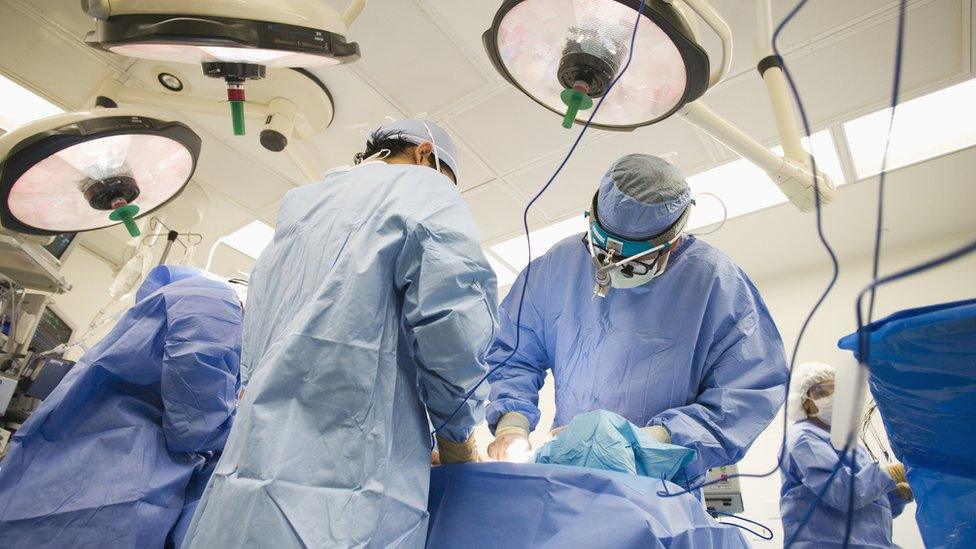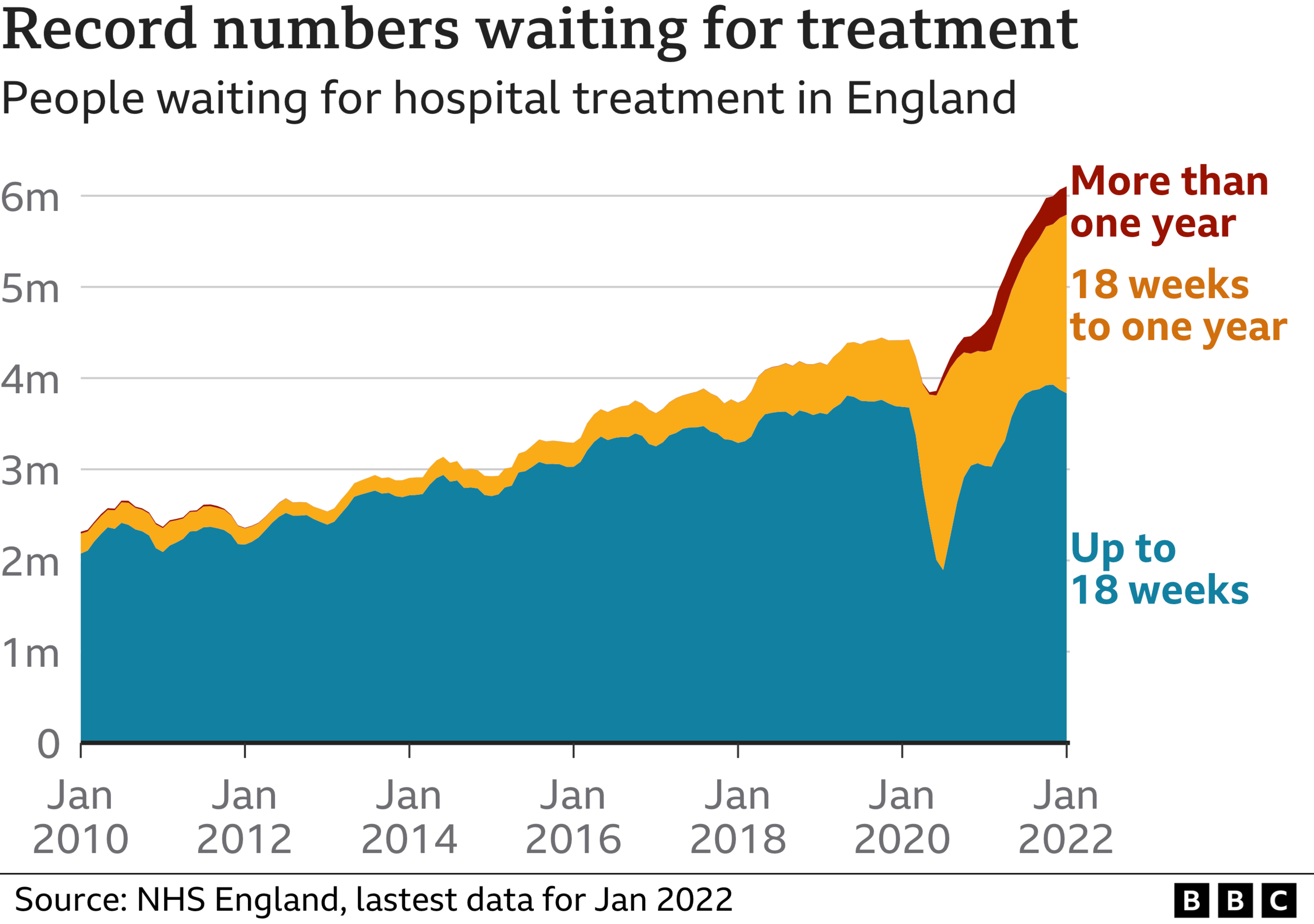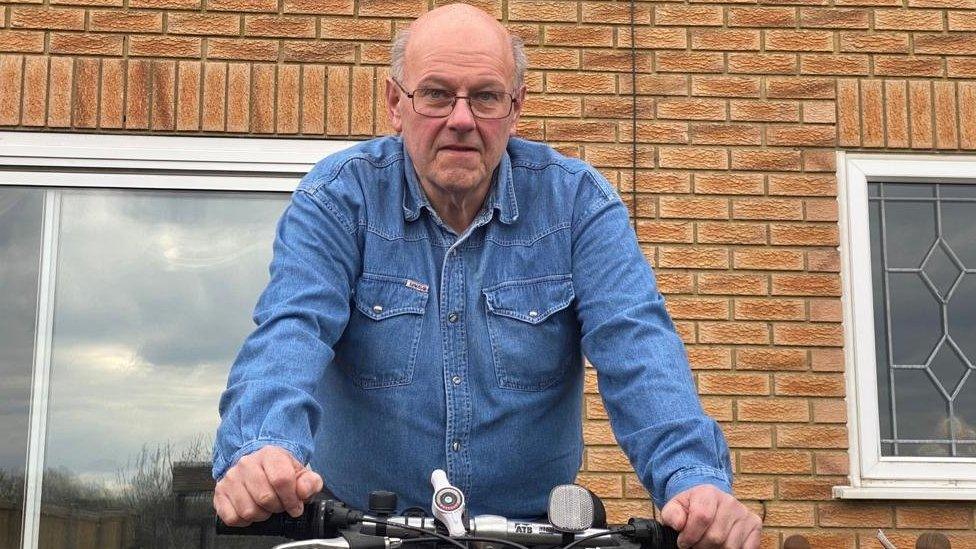Government overseen years of decline in NHS - MPs
- Published
- comments

The government has overseen years of decline in cancer care and non-urgent hospital services in England, MPs say.
The House of Commons Public Accounts Committee said services had started deteriorating long before the pandemic.
It pointed out key targets had not been met since 2016 and the pandemic had just exacerbated the problems.
But ministers said they were investing extra money and creating more capacity to treat patients, to address the backlog that had now developed.
If you can't see the look-up, click here.
More than six million people are currently on a hospital waiting list - one in nine of the population - the highest figure on record.
This includes people waiting for operations such as knee and hip replacements.
Meanwhile, just two-thirds of urgent cancer patients start treatment within the target time of 62 days.
And the number of referrals for cancer care has dropped by between 240,000 and 740,000 since the pandemic started.


The MPs said people would face serious health consequences because of delays in cancer treatment, with some dying earlier.
The government is also accused of failing to recognise staffing the health service remains its biggest problem.
The MPs said the workforce was crippled by shortages and exhausted by two years of the pandemic.
'Extremely concerned'
Dame Meg Hillier, who chairs the PAC, said: "The Department for Health and Social Care has overseen a long-term decline that is dragging our NHS and the heroic staff down."
And she was "extremely concerned" there was still no real plan to tackle the problems.
Last month, the government announced a recovery plan, with an extra £8bn being invested over the next three years, which ministers said would see 30% more patients treated.
Crucial to this will be the establishment of a network of 160 community diagnostic centres along with surgical hubs focused on high-volume routine surgery away from major hospital sites - to increase efficiency and reduce the chance of emergency cases leading to cancellations.
The Department for Health and Social Care defended its record, saying it had been investing extra money into services throughout the period and the new plan would have a real impact on waits.
Related topics
- Published7 February 2022

- Published13 January 2022

- Published8 January 2022
- Published6 January 2022

- Published28 May 2021

- Published14 March 2024

- Published15 April 2021

